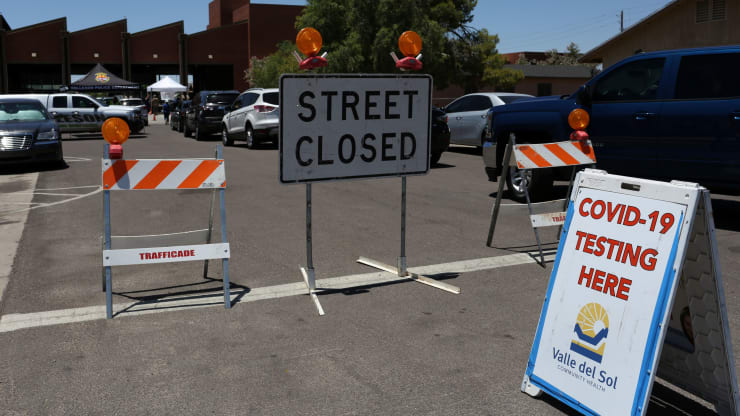
As COVID-19 cases continue to surge in several U.S. states, a Harvard doctor urged the country to continue taking precautions.
"We can't just give up," Dr. Jeremy Faust, an instructor at Harvard Medical School, noted on CNBC's business news program "Power Lunch", adding that though many are exhausted from shutdowns, people should consider other things instead of doing nothing.
States like Texas and California have seen a mounting number of COVID-19 cases after they lifted stay-at-home orders and eased restrictions on businesses.
Under such circumstances, Faust highlighted the importance of wearing a face mask and practicing social distancing among the public.
"They help a little bit, all the time," Faust said, adding that it is necessary to combat the virus spread by contact tracing and quarantining those who are infected with the disease, although asymptomatic patients would definitely add difficulties to the prevention and control efforts. However, "that doesn't mean we should not do all of this because it helps a little. We have to recognize that just because something isn't perfect doesn't mean it isn't good," he suggested.
Considering the eased restrictions would cause a big loss of the economy, William Hanage, a professor of epidemiology at Harvard's T.H. Chan School of Public Health warned the state and local governments must be proactive when smaller case increases arise.
However, Faust emphasized that some governors have reopened their economies without properly considering the rising number of COVID-19 cases. Meanwhile, an analysis from the New York Times also found many of the earliest states that have lifted restrictions did not meet the feasible criteria organized by the White House.
"The lesson is that you want to be data driven, not date driven," Faust said.
(Cover: People line up to be tested for COVID-19 as a part of Valle del Sol's testing at Tolleson Fire Department Station 161 in Tolleson, Arizona, U.S. June 18, 2020. /Reuters)